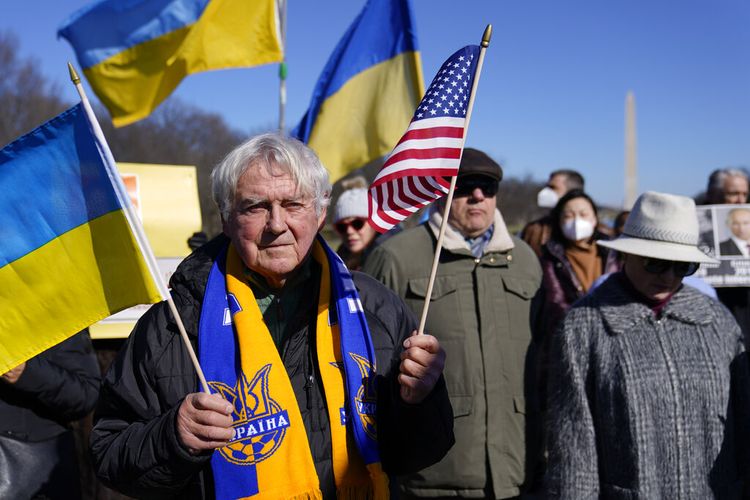Politico: France calls for curb on Ukrainian imports. France is calling for a curb on Ukrainian agricultural imports, joining Poland in a push that could cost Kyiv 1.2 billion euros ($1.3 billion) in trade revenue, Politico reported on March 19.
Shmyhal: Ukraine hopes to get enough shells by April. "We hope that this Czech initiative, which Luxembourg joined, will help us, and beginning since (from) April we will have enough ammunition to deter our frontline," Prime Minister Denys Shmyhal said.
Ukraine, Estonia begin drafting bilateral security agreement. Ukraine and Estonia have started work on a draft bilateral security agreement, the Presidential Office said on March 19.
Ukrainian embassy condemns Australian broadcast of documentary filmed on Russian side of front line. The program "was the journalistic equivalent of a bowl of vomit," and ABC "should be ashamed that it put such total garbage to air," the embassy said.
Russian President Vladimir Putin easily cruised to victory in an election ruled neither free nor fair, solidifying his grip on power for another six years.
Russia's Central Election Commission awarded Putin with 87.2% of the vote in an election that was widely seen as tightly controlled and without the participation of any meaningful opposition.
Western leaders have characterized the vote as fundamentally unfair. Yet, they have stopped short of officially declaring that they will not recognize the results, and Putin as president.
While saying there was "nothing free or fair" about the election, U.S. National Security Advisor Jake Sullivan stopped short of saying it was illegitimate.
The choice of words was intentional.
“The reality is that President Putin is the president of Russia, and we've had to deal with that reality throughout the war in Ukraine, during other aggressions by Russia, during other moves that are against U.S. national interests that we've seen from this president of the Russian Federation," Sullivan added.
Speaking the day before the election began, U.S. State Department spokesperson Matthew Miller said, "The United States does not and will never recognize the legitimacy or outcome of these sham elections held in sovereign Ukraine as part of Russia's presidential elections."
Miller was referring to voting that took place, literally at gunpoint at times, on Ukrainian territory illegally annexed by Russia.
Josep Borrell, the EU's top diplomat, said that voting on Ukrainian territory was "null and void" and that the election organizers "will face consequences of these illegal actions."
It's currently unknown what consequences would Russian officials face.
The previous Russian presidential election in 2018, which Putin won handily, also included voting in the illegally annexed Ukrainian territory of Crimea. Then U.S. President Donald Trump called Putin after to congratulate him on the results.
And while, this time around, Putin would have to settle for a smaller support group, Indian Prime Minister Narendra Modi, and Turkish President Recep Tayyip Erdogan didn't shy away from congratulating the Russian president.
Chinese President Xi Jinping also sent his congratulations, while West's arsenal to punish Putin for his war against Ukraine, occupation of the country's territories, and conducting a sham vote at gunpoint remains limited.
High hopes, little results
Following the blatantly rigged 2020 Belarusian election that handed dictator Alexander Lukashenko another term in the presidential office, EU and U.S. officials, said they would not consider Lukashenko to be the legitimately elected leader.
Many have urged the West do the same with Putin.
Jailed Russian dissident Vladimir Kara-Murza wrote an op-ed for the Washington Post arguing that the West should declare Putin to be illegitimate and the election illegal.
Kara-Murza cited the government's crackdown on free press, the inability of meaningful opposition candidates to participate, and rules set out in Russia's own constitution as key reasons to explicitly not recognize Putin's reelection.
Yet, there are also crucial differences between the regimes of Lukashenko and Venezuelan President Nicolas Maduro, who is also viewed as illegitimate by the U.S., and Putin.
Both Belarus and Venezuela have opposition figures – Sviatlana Tsikhanouskaya and Juan Guaido, respectively – who were recognized by some countries as legitimate leaders and have a base of support.
While neither leader has so far been able to actually take the reins, they presented an alternate possibility that does not exist in Russia.



